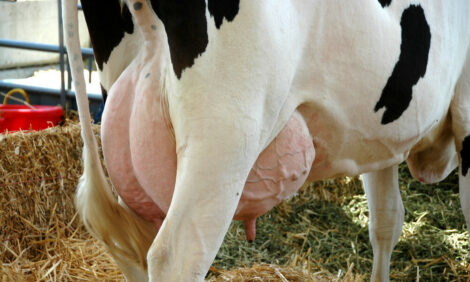



Canada and Mexico to Lock Horns With US over COOL
ANALYSIS - The imposition of Country of Origin Labelling could cause a trade war between the US, Canada and Mexico.This week the Mexican and Canadian governments called on the World Trade Organization (WTO) to set up a compliance panel to rule on the Country of Origin Labelling (COOL) regulations imposed by the United States.
The two governments claim that the new regulations have hit Mexican cattle exports and livestock exports from Canada.
They want the panel to rule that the US has not fully complied with its resolutions.
On 23 July last year, the WTO ruled that the COOL rules imposed by the US, are discriminatory and contrary to the principles of the organisation, altering bilateral trade practices in the meat that prevailed for years and that allowed the efficient flow trade.
The WTO decision recognised that the US action to require that meat products show on a label that they come from cattle born in Mexico, involves segregation practices affecting Mexican cattle along the production chain. This results in high costs that are transferred to Mexican producers and encourages the use of US livestock for the production of meat products.
The WTO gave the United States 10 months to modify these rules.
This period expired on 23 May 23 this year and on that date, the US Department of Agriculture issued a new rule amending the administrative provisions of COOL, which were intended to comply with the WTO decision.
However, the Mexican and Canadian governments said that the new rule is even stricter than the original and has challenged it in the WTO.
Mexico and Canada say it generates more trade distortion.
“Far from trying to eliminate the discriminatory aspects of the original measure, the new rule increases incentives to avoid buying imported cattle, which further impact Mexican cattle exports to the United States,” the Mexican government said.
Ed Fast, the Canada Minister of International Trade, and Gerry Ritz, Minister of Agriculture and Agri-Food, said: “Following through on its commitment to stand up for Canadian livestock producers by pursuing all options available to resolve this dispute, our government requested today the establishment of a World Trade Organization compliance panel on US Country of Origin Labelling.
“We had hoped to avoid having to again resort to the WTO to resolve this matter. However, despite consistent rulings by the WTO, the US government continues its unfair trade practices, which are severely damaging to Canadian industry and jobs.
“Canada considers that the United States has failed to bring its COOL measure into conformity with its WTO obligations. We believe that the recent amendments to the COOL measure will further hinder the ability of Canadian cattle and hog producers to freely compete in the US market.
“Our government, with the full support and active engagement of the Canadian industry, will continue to fight against this unfair treatment, which is also hurting US industry and consumers.
“We continue to consult with stakeholders as we pursue a fair resolution of this issue. To respect Canada’s WTO obligations, our government will not act on retaliatory measures until the WTO authorises us to do so.”
Following the modification of the rule by the US in May this year, the Congressional Research Service of the US said: “On May 23, 2013, USDA issued a final rule to modify how muscle cuts of meat are to be labelled in order to comply with the WTO’s findings that current COOL labelling requirements discriminate against imported livestock. The final rule requires that labels show where each production step (i.e., born, raised, slaughtered) occurs and prohibits commingling of muscle cuts of meat from different origins.
“COOL’s supporters have applauded the final rule for providing consumers with specific and more useful information on origin.”
The Research Service added: “Canada and Mexico have expressed disappointment with the rule, and argue that it does not bring the United States into compliance with its WTO obligations.”
Mexico and Canada have based their claim on the fact that the new COOL rule keeps the discriminatory effect and constitutes an unnecessary obstacle to international trade, which were determined to be contrary to the obligations of the United States to the WTO.
The compliance panel requested by Mexico and Canada will determine whether the COOL new rule issued by the United States on 23 May complies with the WTO principles.
It the WTO conforms that the new COOL regulation does not comply with the WTO principles, Mexico says it will be in a position to start imposing trade sanctions against the US.
The panel is expected to be set up next month and the final decision taken in the first half of next year.



